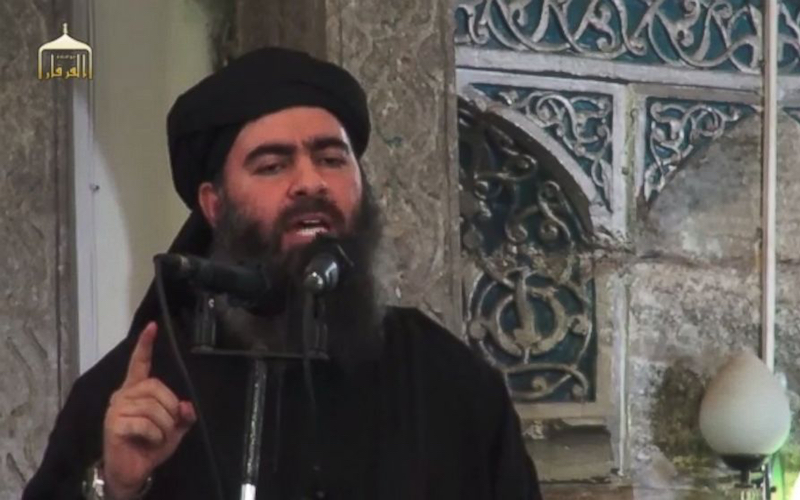
What Did the Arab Spring Achieve?
The Arab Spring in North Africa began in Tunisia in December 2010, with the self-immolation of a street vendor named Mohamed Bouazizi who had his fruit and vegetable cart confiscated by local authorities. Massive protests forced President Zine el-Abidine Ben Ali to flee to Saudi Arabia. President Moncef Marzouki his successor failed to unify the country, and under political pressure agreed to hold new elections– which he postponed twice. Islamists have carried out attacks against members of parliament and political leaders, recently killing two moderate candidates. In May 2014 the electoral laws were changed to allow former officials in Ben Ali’s administration to run for office. Twenty former government leaders were recently released from prison, which sparked public outcry. Adding to the chaos last week fourteen soldiers were killed while pursuing AQIM Islamists embedded in the Chaambi Mountain region near the western border with Algeria.
The discontent in North Africa spread quickly to Egypt where riots led to the ousting of President Hosni Mubarak, the military ruler. In the elections that followed U.S. State Department personnel coached the Muslim Brotherhood on the election process bringing to power Mohammed Morsi, a radical Islamist, who was deposed a year later. His attempt to institute Sharia law had caused major riots. Egypt again is in the hands of a military ruler. The Muslim Brotherhood continues to undermine the political process across North Africa and the Middle East. Democracy and tolerance have not taken hold in Egypt with on-going abuses and arrests of opposition leaders, outspoken activists, and journalists.
U.S. and NATO forces undertook a military incursion into oil rich Libya, in support of rebel groups in their fight against the Gaddafi regime.
The Islamists tracked down Gaddafi in his home town of Sirte and killed him, and also slaughtered many of his Warfalla tribe. Gaddafi had proffered that if he were overthrown, al-Qaeda would take control of Libya.
The interim president, Mohammed Magarief has not been able to unify the country. He and the prime minister, Ali Zeidan had been under constant threats by Islamists, before finally resigning. The new interim president, Nouri Abusahmain has not been able to control the Islamists who have expanded their presence throughout the country.
In Benghazi, the second largest city, where Islamists attacked the U.S. consulate in September 2012 and killed the U.S. ambassador J. Christopher Stevens and three other Americans, the Islamists are tightening their grip on the government. The Islamists also have taken control of the oil production facilities in the region. In Tripoli, the capital, Islamist militias are fighting for control, and destroyed the airport this week. Last Saturday the U.S. embassy was evacuated with seventy personnel and eighty Marines fleeing to Tunisia, according to reports. Earlier that week Islamists crossed the border into Egypt and attacked a military outpost 120 miles away, killing over twenty soldiers.
The Islamists in Libya are well-armed with weapons that were left unprotected after the downfall of Gaddafi. Many of these weapons have also fallen into the hands of Islamists across the Maghreb and Sahel regions; the Arabian Peninsula and the Middle East. The Islamist groups competing for control throughout the region include: the Islamic State in Iraq and Syria (ISIS), al-Nusra Front, Al-Qaeda in the Islamic Maghreb (AQIM), Ansar al-Sharia, Libyan Islamic Fighters, Ansar Dine, Boko Haram, al-Shabaab, Al-Qaeda in the Arabian Peninsula (AQAP), Egyptian Islamic Jihad, and Movement for Oneness and Jihad in West Africa (MOJWA).
In Yemen the president, Ali Abdullah Saleh, faced with massive protests in 2011 agreed step down, but later changed his mind. That June Islamists planted a bomb at the presidential palace in an assassination attempt–seriously injuring Saleh. Not able to lead he turned power over to his vice president, Abd Rabbuh Manṣur Hadi. Yemen is in disarray struggling with the AQAP Islamists who control parts of the southern region. U.S. drones seeking to kill the embedded Islamists have not been able to stop their attacks, and are now also actively fighting in Syria.
In Iraq the prime minister, Nouri al-Maliki, a Shiite, has excluded the Sunni and Kurdish minorities from participating fairly in the governing process, which has created dissention. In less than three years since the U.S. military withdrew, al-Maliki has turned Iraq into a chaotic state. His actions have emboldened ISIS militants that have been successful in taking control of towns and villages along the Iraq and Syria border region—recently declaring a caliphate.
Syria is in its third year of a brutal civil war that has destroyed towns and villages; thousands of people have been killed. Saudi Arabia, Qatar and other states have supplied weapons to Islamist groups. The U.S. wants President Bashar Al-Assad to step down although he was recently reelected to another seven year term. The dilemma is that an individual has not been identified who can unify Syria. It is clear the Islamists will continue to fight for control of large swaths of the country. Neighboring Jordan has seen Islamists infiltrate the refugee camps, where they are recruiting young jihadists to join their ranks.
Throughout the Sahel, Islamists are active in almost every country. Boko Haram in Nigeria is destroying government buildings, churches, and schools, and has kidnapped and killed hundreds of students. They have burned down numerous villages–just last week wiping out an entire village, killing 100 people. They have also undertaken attacks in neighboring Niger, Chad, and Cameroon. In Somalia al-Shabaab last week killed a female member of parliament, the fourth such killing this year. They also have kidnapped and killed dozens of tourists in the coastal town of Mombasa, Kenya. In Mali Tuareg separatists, Ansar Dine, and AQIM had taken control of the northern half of the country in 2012. French troops helped drive the Islamists out in 2013. Last week in the town of Gao, a French soldier was killed–the ninth since 2013—which indicates the insurgents are returning. Adding the on-going dispute with the Tuareg separatists the French plan on leaving 3,000 troops behind along with the 6,000 UN peacekeepers, to thwart further attacks.
Osama bin Laden’s demise in 2011 was heralded as the beginning of al-Qaeda’s defeat. History tells another story: The rise of Islam started in the 7th century when the Prophet Muhammad began to unify Arabia into a single religious polity. Islam rose to power in the 12th century with Sultan Saladin defeating the Crusaders, and establishing a caliphate in North Africa and the Middle East. The Ottoman Empire in the 13th century expanded Islam’s territorial power, ultimately controlling much of Europe, Asia, North Africa, and the Horn of Africa which lasted until after World War I, when the empire was dismantled. Islamists have been waiting since for a chance to return to power. The Soviet invasion into Afghanistan in 1979 provided that opportunity, with Osama bin Laden picking up the mantle. He came from Saudi Arabia to join the mujahedeen in their fight, and became an ally. The U.S. clandestinely supported bin Laden and the Afghan fighters by supplying weapons and logistical support. As the Soviets withdrew in the late 1980’s Osama bin Laden formed al-Qaeda (the Base) and mobilized a number Arab fighters.
Today al-Qaeda has morphed into a mentor role, attracting new Islamist affiliates. Wahhabist and Salafist imams, funded by Saudi Arabia, Qatar and other Arab states, continue to preach armed jihad which has attracted many new young followers. It will be difficult for the U.S. to militarily defeat the Islamists, or institute our form of democracy in these conflicted Muslim societies.
The Arab Spring brought about regime change, but did not bring about peace—only a quagmire in these Arab states. The U.S. believed that new leadership would bring about better governance and improved living conditions for the people. However without an endgame plan, the changes in these countries only led to chaos. Without leaders who can unify the differing religious, ethnic and cultural factions it will be difficult to ever find peace. The recent gains made by Islamists have also emboldened Hamas in Gaza, which is supported by Arab financiers. The Arab Spring has been high jacked by Islamists who are using the instability to create an Islamic caliphate–which may prove to be difficult to reverse.

